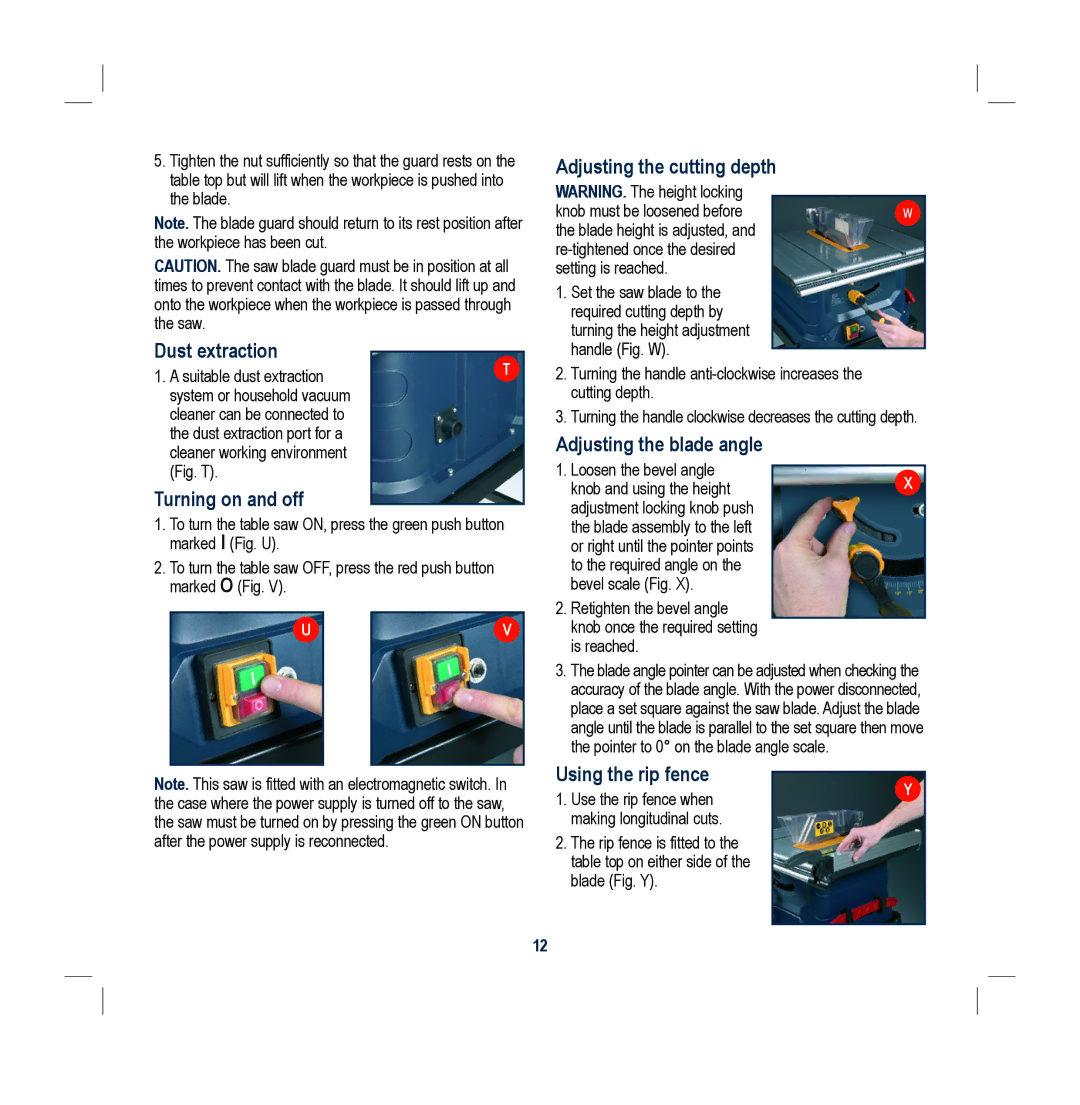
5.Tighten the nut sufficiently so that the guard rests on the table top but will lift when the workpiece is pushed into the blade.
Note. The blade guard should return to its rest position after the workpiece has been cut.
CAUTION. The saw blade guard must be in position at all times to prevent contact with the blade. It should lift up and onto the workpiece when the workpiece is passed through the saw.
Dust extraction |
| |
T | ||
1. A suitable dust extraction | ||
| ||
system or household vacuum |
| |
cleaner can be connected to |
| |
the dust extraction port for a |
| |
cleaner working environment |
| |
(Fig. T). |
| |
Turning on and off |
| |
|
1.To turn the table saw ON, press the green push button marked I (Fig. U).
2.To turn the table saw OFF, press the red push button marked O (Fig. V).
U |
| V |
|
|
|
Note. This saw is fitted with an electromagnetic switch. In the case where the power supply is turned off to the saw, the saw must be turned on by pressing the green ON button after the power supply is reconnected.
Adjusting the cutting depth
WARNING. The height locking
knob must be loosened beforeW the blade height is adjusted, and
1.Set the saw blade to the required cutting depth by turning the height adjustment handle (Fig. W).
2.Turning the handle
3.Turning the handle clockwise decreases the cutting depth.
Adjusting the blade angle
1. Loosen the bevel angle
knob and using the heightX adjustment locking knob push
the blade assembly to the left or right until the pointer points to the required angle on the bevel scale (Fig. X).
2.Retighten the bevel angle knob once the required setting is reached.
3.The blade angle pointer can be adjusted when checking the accuracy of the blade angle. With the power disconnected, place a set square against the saw blade. Adjust the blade angle until the blade is parallel to the set square then move the pointer to 0° on the blade angle scale.
Using the rip fence |
| |
Y | ||
1. Use the rip fence when | ||
| ||
making longitudinal cuts. |
|
2.The rip fence is fitted to the table top on either side of the blade (Fig. Y).
12
